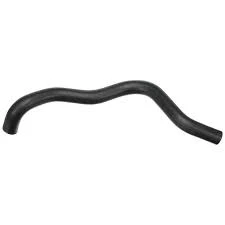flexible fuel line
Sep . 14, 2024 08:25 Back to list
flexible fuel line
Flexible Fuel Lines An Essential Component in Modern Automotive Design
Flexible fuel lines play a pivotal role in modern automotive engineering, providing an intricate yet critical function in the efficient operation of vehicles. These specialized hoses are designed to transport fuel from the tank to the engine while withstanding varying temperature extremes, pressures, and the inherent chemical properties of different types of fuel. The importance of flexible fuel lines cannot be overstated, as they directly impact vehicle performance, safety, and environmental sustainability.
One of the primary advantages of flexible fuel lines is their ability to accommodate the many complexities of a vehicle's design. As cars evolve, manufacturers are challenged with creating more compact and efficient designs that enhance performance and safety. Traditional rigid fuel lines often struggle to fit within these tighter confines, whereas flexible fuel lines can bend and twist to navigate around obstacles while maintaining a secure seal. This adaptability not only simplifies installation but also ensures a more reliable fuel delivery system.
Another critical aspect of flexible fuel lines is their resistance to fuel types. With the introduction of alternative fuels, including biodiesel and ethanol blends, the demand for materials that can resist corrosion and degradation has grown significantly. Many modern flexible fuel lines are constructed from advanced materials such as fluoropolymer and nylon, which can withstand the corrosive effects of various fuels, ensuring longevity and functionality. This adaptability is essential in a landscape where consumers are increasingly opting for biofuels, and manufacturers must comply with stricter environmental regulations.
flexible fuel line

Safety is another significant concern addressed by flexible fuel lines. Fuel leaks pose a substantial risk, potentially leading to fire hazards and environmental contamination. Flexible fuel lines are rigorously tested for durability and leak resistance, ensuring that they can withstand the rigors of everyday driving conditions. The implementation of high-quality fuel line materials significantly reduces the risk of leaks, providing peace of mind to both manufacturers and consumers. Additionally, regular inspections and adherence to maintenance schedules can further enhance safety and performance.
From an environmental standpoint, flexible fuel lines contribute positively to sustainability efforts in the automotive industry. By enabling the use of cleaner energy sources, they facilitate a transition towards greener fuel options. Flexible fuel lines are engineered to optimize fuel flow, which can improve overall vehicle efficiency and reduce greenhouse gas emissions. This alignment with environmental objectives is increasingly crucial as global pressures to mitigate climate change intensify.
In conclusion, flexible fuel lines are not merely functional components; they are fundamental to the overall performance, safety, and sustainability of modern vehicles. As automotive technology continues to advance, these versatile hoses will undoubtedly evolve as well, adapting to meet new engineering challenges and environmental demands. With their ability to accommodate various fuels, enhance safety, and promote sustainability, flexible fuel lines remain an indispensable part of the automotive industry, playing a crucial role in shaping the future of transportation. As we move towards an era of more sustainable and efficient vehicles, the significance of flexible fuel lines will only continue to grow.
